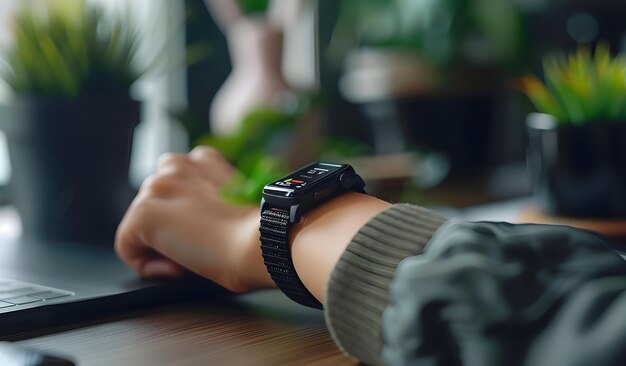When it comes to enhancing your athletic performance and tracking your fitness progress, a high-quality sports watch can make all the difference. From detailed metrics to real-time feedback, these gadgets are designed to support athletes and fitness enthusiasts alike. But with so many options on the market, how do you choose the right one? Let’s explore everything you need to know about sports watches.
What is a Sports Watch?
Definition and Purpose
A sports watch is a timepiece designed specifically for athletes and active individuals. Unlike traditional watches, sports watches are equipped with features that track and analyze physical activities, helping users monitor their performance and improve their fitness.
Key Features of Sports Watches
Sports watches typically include features like GPS tracking, heart rate monitoring, and water resistance. These functions are tailored to support various sports and activities, providing users with detailed insights and feedback.
Types of Sports Watches
Fitness Trackers
Fitness trackers are perfect for those who want to monitor their daily activity levels, including steps taken, calories burned, and sleep quality. They often include basic heart rate monitoring and can sync with mobile apps for detailed analytics.
Running Watches
Designed for runners, these watches offer advanced features like GPS tracking, pace monitoring, and lap timers. They are ideal for tracking distance, speed, and running dynamics, making them a favorite among serious runners.
Multi-Sport Watches
Multi-sport watches are versatile and suitable for various activities, including running, cycling, swimming, and hiking. They offer a range of metrics tailored to different sports, allowing users to switch between activities seamlessly.
Dive Watches
Dive watches are built to withstand underwater pressure and are often equipped with features like depth gauges and dive logs. They are essential for divers who need reliable timekeeping and performance tracking underwater.
Essential Features to Consider
Accuracy and GPS
Accuracy is crucial for sports watches, especially for activities like running and cycling. Look for watches with reliable GPS tracking that provides precise location data and performance metrics.
Heart Rate Monitoring
Heart rate monitoring helps you gauge your fitness level and intensity during workouts. Choose a watch with accurate sensors and real-time monitoring to keep track of your heart rate throughout your activities.
Water Resistance
If you plan to swim or engage in water sports, water resistance is a must. Ensure the watch is rated for the water depth you’ll be encountering to prevent damage.
Battery Life
Battery life varies between models and can affect how often you need to charge your watch. Opt for a watch with sufficient battery life to cover your longest workouts or adventures.
Durability and Build Quality
A sports watch should be rugged and durable, capable of withstanding rough conditions and impacts. Look for watches with sturdy materials and robust construction to ensure longevity.
Top Brands in Sports Watches
Garmin
Garmin is renowned for its advanced GPS technology and wide range of sports watches. Their models cater to runners, cyclists, swimmers, and multisport athletes, offering detailed performance metrics and long battery life.
Fitbit
Fitbit is well-known for its fitness trackers and smartwatches. Their devices focus on health monitoring, including heart rate, sleep patterns, and daily activity, with an emphasis on user-friendly interfaces.
Suunto
Suunto watches are designed for outdoor enthusiasts and athletes. They offer features like GPS tracking, barometric altitude measurements, and robust durability for various extreme conditions.
Polar
Polar is a leading brand in heart rate monitoring technology. Their sports watches provide detailed training insights and are popular among athletes who focus on cardiovascular performance.
Apple Watch
Apple Watch combines smartwatch functionality with fitness tracking. It offers a range of health monitoring features, including heart rate tracking, GPS, and integration with various fitness apps.
How to Choose the Right Sports Watch for You
Assessing Your Needs and Goals
Before purchasing a sports watch, consider your specific needs and fitness goals. Determine which features are essential for your activities and how you intend to use the watch.
Comparing Features and Specifications
Compare different models based on features, accuracy, battery life, and compatibility. Make sure the watch you choose aligns with your activity level and provides the necessary metrics.
Setting a Budget
Sports watches come in various price ranges. Set a budget based on the features you need and the level of performance you expect. Higher-end models often offer more advanced features but at a higher cost.
Benefits of Using a Sports Watch
Enhanced Performance Tracking
Sports watches provide detailed metrics that help you track your performance and progress. This data can be invaluable for improving your training and reaching your fitness goals.
Improved Motivation
Having a sports watch can boost your motivation by setting goals, tracking achievements, and providing real-time feedback. The ability to see your progress can encourage you to push harder.
Better Health Monitoring
Sports watches offer insights into your overall health, including heart rate, sleep patterns, and activity levels. This information can help you make informed decisions about your fitness and wellness.
How to Use Your Sports Watch Effectively
Setting Up Your Watch
Properly set up your watch by following the manufacturer’s instructions. Configure your personal settings, such as age, weight, and fitness goals, to ensure accurate data tracking.
Customizing Settings
Customize the watch settings to suit your preferences and activities. Adjust metrics, alerts, and display options to enhance your experience and ensure the watch meets your needs.
Syncing with Apps and Devices
Many sports watches sync with mobile apps and other devices to provide a comprehensive view of your data. Connect your watch to these platforms for in-depth analysis and tracking.
Maintenance and Care for Your Sports Watch
Regular Cleaning
Keep your sports watch clean by wiping it down after each use. Remove any sweat or grime that may accumulate, and avoid exposing the watch to harsh chemicals or extreme conditions.
Battery and Charging Tips
Follow the manufacturer’s recommendations for charging your watch. Avoid overcharging and ensure the watch is fully charged before long workouts or activities.
Troubleshooting Common Issues
If you encounter issues with your watch, consult the troubleshooting guide provided by the manufacturer. Common problems may include syncing issues, accuracy concerns, or display malfunctions.
Sports Watches for Specific Activities
Running and Cycling
For running and cycling, look for watches with advanced GPS tracking, pace monitoring, and heart rate sensors. These features will help you track your performance and improve your training.
Swimming and Triathlons
Swimmers and triathletes need watches with water resistance, lap counting, and multisport modes. These features ensure accurate tracking in different environments and activities.
Hiking and Outdoor Adventures
Outdoor enthusiasts should choose watches with rugged build quality, GPS navigation, and barometric altimeters. These features help navigate and track performance in challenging conditions.
The Future of Sports Watches
Emerging Technologies
Future sports watches will likely incorporate advancements such as AI-driven insights, enhanced sensors, and better integration with other devices. Stay informed about these trends to find the latest innovations.
Predictions for Trends
Expect sports watches to continue evolving with more personalized features, improved accuracy, and greater connectivity. The integration of health monitoring and smart technology will likely become more prevalent.
Conclusion
Sports watches are more than just timepieces; they are essential tools for tracking performance, monitoring health, and achieving fitness goals. Whether you’re a casual exerciser or a serious athlete, finding the right sports watch can enhance your training and motivate you to reach new heights. With the right features and careful consideration, you can choose a watch that perfectly fits your needs and supports your journey to better health and performance.
FAQs
Can I use a sports watch for everyday activities?
Yes, many sports watches are designed for both athletic and everyday use. They often include features like heart rate monitoring and activity tracking that are useful in daily life.
How accurate are sports watches for heart rate monitoring?
Sports watches generally offer good accuracy for heart rate monitoring, though they may vary based on the model and technology used. For the best results, choose a watch with advanced sensors and calibration options.
Are sports watches waterproof?
Most sports watches are water-resistant to varying degrees. If you plan to swim or engage in water sports, ensure the watch has a suitable water resistance rating for your activities.
How often should I update my sports watch?
You should update your sports watch when new software or firmware updates are available. These updates can improve performance, add new features, and fix any bugs.
What should I consider when buying a sports watch for a specific sport?
Consider features relevant to the sport, such as GPS accuracy for running, water resistance for swimming, or ruggedness for hiking. Ensure the watch meets the requirements for your chosen activities.












